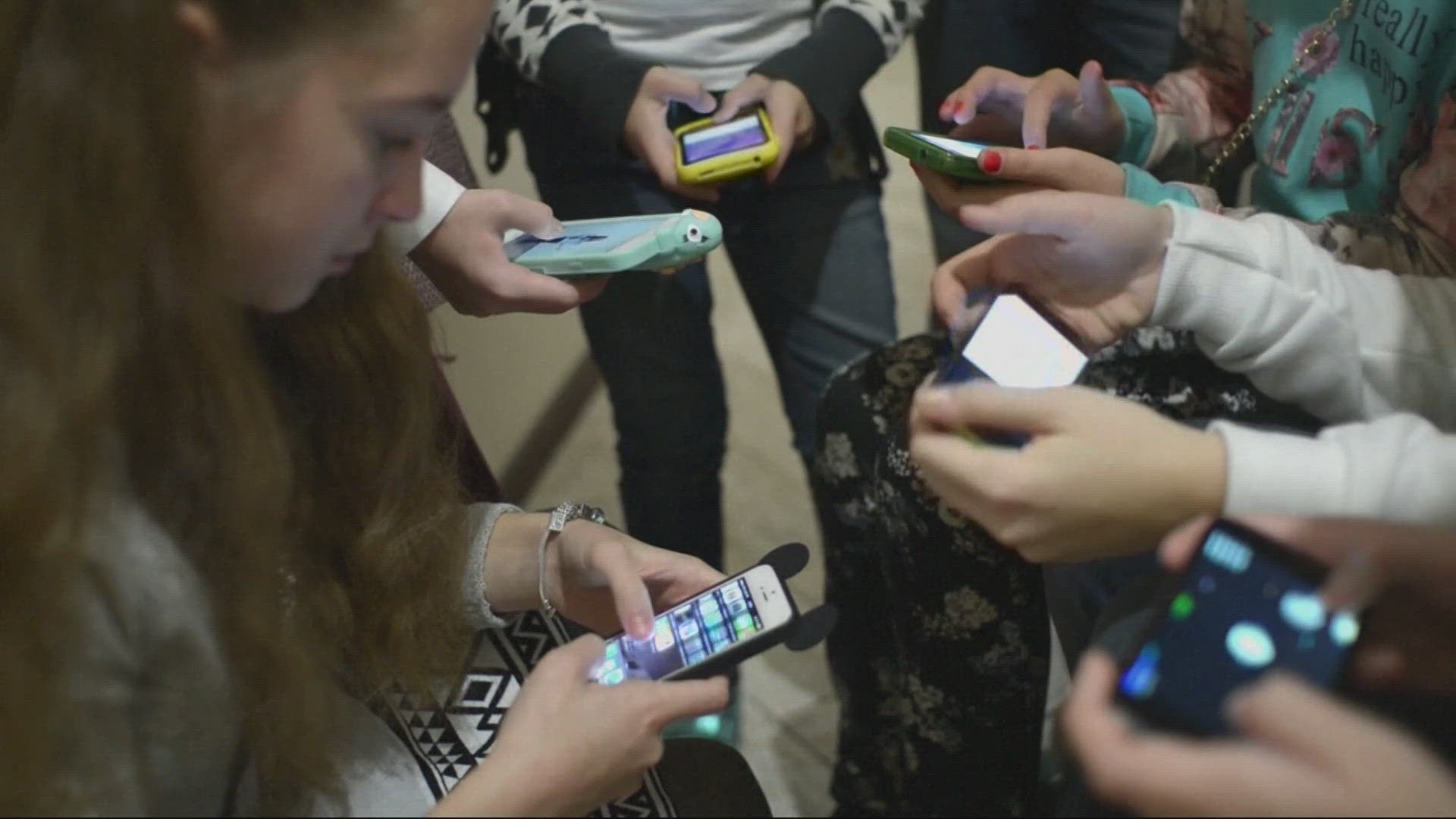PORTLAND, Ore. — In June, U.S. Surgeon General Dr. Vivek Murthy said in a New York Times op-ed that teenagers need to be limited on social media, writing, "The mental health crisis among young people is an emergency and social media has emerged as an important contributor."
In the op-ed, Murthy points to a survey from Boston's Children Digital Wellness Lab that found that the majority checked their phone every 6 to 15 minutes a day outside of sleeping hours and that 46% found it made them feel worse about their body image.
To combat the effects social media has on teens, the U.S. surgeon general wants Congress to take action and put a warning label on social media sites, the same type of warning label one might see on a carton of cigarettes.
"A warning label would help parents understand these risks. Many parents don't know that those risks exist," Murthy told Guthrie during a June appearance on NBC's "Today Show."
"When adolescents spend more than three hours a day on social media, we're seeing an association with a doubling of risk of anxiety and depression symptoms," Murthy told host Savannah Guthrie.
Parents, like Kristin Culpepper, wonder if it will it work: "One label is not going to solve the issue."
Culpepper said her two kids don't have access to social media, just what they see on her phone, but added it'll take more than a warning label.
"More information is always better than less, but really it's up to the adult in the household to really moderate and educate beforehand," she said.
Joining in that call for more to be done are 42 attorneys general from both sides of the aisle across the U.S. In a letter addressed to the speaker of the House and both Senate majority and minority leaders, The National Association of Attorneys General, writing in favor of the warning, said, "By mandating a surgeon general's warning on algorithm-driven social media platforms, congress can help abate this growing crisis and protect future generations of Americans."
Social media platforms have come under fire recently by Congress about the effects their products have on teenagers. In January, the heads of the six largest social media platforms were grilled by the Senate Judiciary Committee about the alleged shortcomings about the safety and well-being of their younger users.
"There's the content in the app, then there's the experience of the user," Yshai Boussi, a Portland family therapist, said. "I spend a lot of time asking (to) notice how you feel when you're on it."
Boussi says a warning would help but won't solve the issue.
"People are going to walk right through it like a wet paper towel if they want to, but if it can contribute to having more conversations about this. to pausing and reflecting, just thinking for a moment in a way that maybe I wouldn't have thought about before," Boussi said.
Boussi said some things parents can do if a child asks for social media access at a middle school or younger age is to empathize with them and understand why they want it, and added that holding off until when they are around high school age will be more beneficial for the child because they are able to process the situations better.
"It's a train that isn't going to stop, so how do we help our kids have the skills and be prepared for it?" Boussi said.
Both the attorneys general in their letter and the U.S. surgeon general recognize that a warning label won't solve the bigger issues surrounding the impacts of teen use on social media, but say it's a start. Murthy suggests having tech-free zones at school, home, dinnertime and social gatherings to limit use and that kids shouldn't have access to social media until after middle school.

